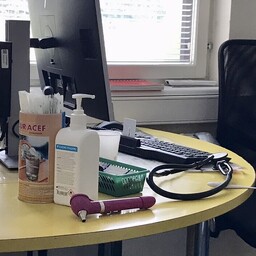A few weeks ago, Katri Kukk-Toomsalu defended her master's thesis, which analyzed the motivation of Estonian healthcare workers during an armed conflict. The work was based on 22 interviews with employees from various hospitals and professional associations.
In the context of an armed conflict, the issue of national loyalty and trust arose. 14 interviewees noted that colleagues' motivation might depend on their nationality. Nine interviewees expressed doubts about colleagues who follow Russian media. Two interviewees had experienced conflicts at work with pro-Russian colleagues.
Kukk-Toomsalu emphasized that nationality should not be an automatic criterion for assessing loyalty. She found that younger Russian employees are more Estonian-minded. Among older employees, however, pro-Russian attitudes are more common, influenced by Russian media.
A doctor from Ida-Viru County pointed out that different views often lead to avoiding political topics within families. For example, during the war between Ukraine and Russia, some do not support Ukraine, but neither do they directly support Russia.
The location of the hospital plays a significant role. Healthcare workers believe that the level of risk depends on the size and location of the hospital. For example, the North Estonia Medical Centre and the Tartu University Hospital were considered more likely targets. Working in smaller county hospitals was seen as a safer alternative.
The master's thesis, based on interviews with 22 healthcare workers, confirmed that 15 of them would stay in Estonia during an armed conflict and continue their professional work. Events in Ukraine have shown that the threat landscape in Europe has changed significantly.
Kukk-Toomsalu's thesis also highlighted the issue of employee cross-utilization. Estonian healthcare workers often have multiple jobs, which provides additional income, but in a crisis, this could jeopardize the system's functionality. There is currently a shortage of medical workers in hospitals. The absence of one doctor can significantly affect a hospital's operations.
The critical shortage and cross-utilization of healthcare workers also lead to faster burnout. This raises doubts about the system's ability to cope with a potential armed conflict.

